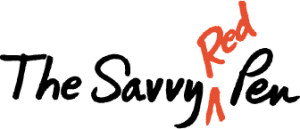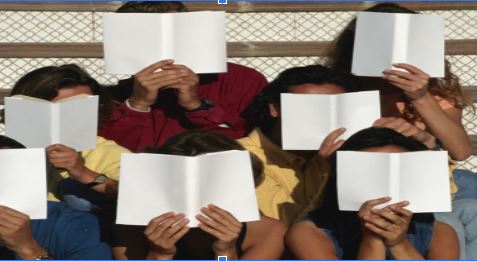What is a Beta Reader?
Beta readers provide feedback on authors’ manuscripts before submission to an editor. Essentially, they read an imperfect version of a book (There’s no such thing as perfect.) and let authors know what they think. Using beta readers is part of your revision process.
Think of beta testing like product testing. In this case, the product is your book. They’re taking your book for a test drive. You want them to tell you if the road is smooth or bumpy, if the route is clear or filled with detours. Does the style match the driver’s personality, and does the equipment work efficiently? Would you buy it?
Why Should We Use Beta Readers?
Smart and professional authors need to get feedback from test readers–betas–before their manuscripts go to their editors. You’ve spend so much time, energy, and sweat equity on your manuscript, you can’t see straight—at least not straight enough to be objective about your book.
And you want—and need—to anticipate how your readers will react to your book. You also want to present your best version to your editor.
We use beta readers to improve our books— to improve readability, usefulness, and saleability. As an author, you want to provide the best experience for your readers, right? We want to make sure we’re on the right track. Are there weak spots? Errors? Inconsistencies?
What Do Beta Readers Do?
Beta readers will read an entire manuscript on their own, in contrast to being part of a critique group, and develop a personal response to it. Often, a beta reader will respond to specific questions you might pose, or they will write comments in the margins of the book. Sometimes, they do both.
You want them to see if there are any missing pieces or details, sections that need to be clarified, or awkward transitions. If you’re writing fiction, you want your betas to evaluate elements such as setting, plot, characters, and dialogue.
What Beta Readers Aren’t
They’re your test readers, not your editors. While some of your beta readers might be skilled writers versed in grammar and punctuation, don’t expect them to replace the editor. Book editing talent goes well beyond language nuts and bolts, but they will line edit for you. Beta readers should be looking at your book from the big issues perspective—what we call developmental issues. Beta readers evaluate elements like the flow of the book, the placement of information, the development of characters in fiction.
Who Should You Ask to be a Beta Reader?
The key is to choose people who will give you honest feedback—the good, the bad, and the ugly. Think twice before counting on your BFF or your proud mom to be 100% truthful. Critique from the right people is constructive, allowing you to improve your writing, and therefore your book—before you put it out there for the whole world to see.
How many Beta Readers Should You Use?
Common practice is 3-5. I’ve worked with authors who have enlisted as many as 7, but you have to be willing to juggle and listen to feedback and make appropriate changes. Sometimes there are too many “cooks in the kitchen.”
Questions to ponder about your potential beta readers:
- Are they representative of your target audience?
- Do they typically read books in your genre?
- What’s their experience with your subject matter?
- Are they interested in your subject?
- Are they honest enough to tell you the truth about your writing?
- What’s their writing skill level?
You might consider putting together a group of beta readers with a variety of experience with your topic and writing skills, ranging from a lot to not much and excellent to average. You want to get realistic feedback. After all, your potential readers are real and probably represent various skillsets and interests.
When Should I Ask for Beta Reader Feedback?
The ideal time in the process is after you’ve drafted and self-edited your manuscript but before it goes to your editor. Even at this point, you want to make sure you’re on the right track.
Some authors schedule enough time in their process to allow for a second round of beta reading after the initial suggested changes are made, but no matter what, plan for a beta read before your editor works with it.
What Should I Send a Beta Reader?
Your Manuscript
- Either a complete typed manuscript as hard copy or as a word document, not a PDF. The digital format depends on whether they are an Apple or PC user.
- Use 12-point type in Arial or Times New Roman, double space.
Letter of Request
Contact a potential beta reader directly through a phone call, email, or both. The way you contact someone depends on your relationship with them and whether or not they’re aware you’re writing a book and what it’s about. Be professional and friendly, regardless of your relationship.
Possible wording:
-
- Introduction:
“I have finished writing a draft manuscript of my book (title)/subtitle) and am at the stage where I am looking for specific feedback. I would be honored if you would agree to be a beta reader. (or I would appreciate it if you . . .)”
“I think you’d be a perfect beta reader because . . .”
(Think about their role in the field you’re writing about and their expertise, their writing skill sets, their experience as a reader, their objectivity and ability to be honest.)
-
- Super Short Book Summary (two or three brief sentences)
- Expectations
- (Deadline: The typical timeframe is 2-3 weeks.)
“I would appreciate it if you could read my manuscript and provide feedback to me in the next _____weeks. I’m attaching a feedback form with some specific questions for you to answer, but feel free to provide comments in a more open format if that’s better for you.
If you’re willing to be a beta reader but aren’t available in the next several weeks, please let me know, and we’ll figure out an alternative.
Would you prefer I send you a hard copy manuscript or a digital version?”
-
- Conclusion
“ Thanks so much for considering being a beta reader for me. I value your time and input, and I look forward to hearing back from you about your availability. Could you please get back to me within the week?
Feel free to call or email me if you have questions.”
Gratefully.
Your name
(and appropriate title if applicable)
Contact info
Website if appropriate
What Should You Do with the Feedback?
Even though what you really want to hear from every reader is, “I loved everything about the book,” you asked them to be honest. Be open-minded and embrace the criticism. You’ll improve your writing—and your book.
You don’t need to make every single suggested change. Consider if the majority of your beta readers agree. Take a look at their comments, and think about whether their suggestions could make your book better and help you achieve your goals.
BTW: If your beta readers love your book (or specific aspects of the book), you might ask them to write a testimonial you could use as a cover blurb.
How Do You Show Appreciation to Your Beta Readers?
If your beta reader is a colleague or fellow writer, you might offer to return the favor in some way—offer to read or promote one of their projects.
Also, offer to send them a signed copy of your book when it comes out and include a personalized thank you notes.

